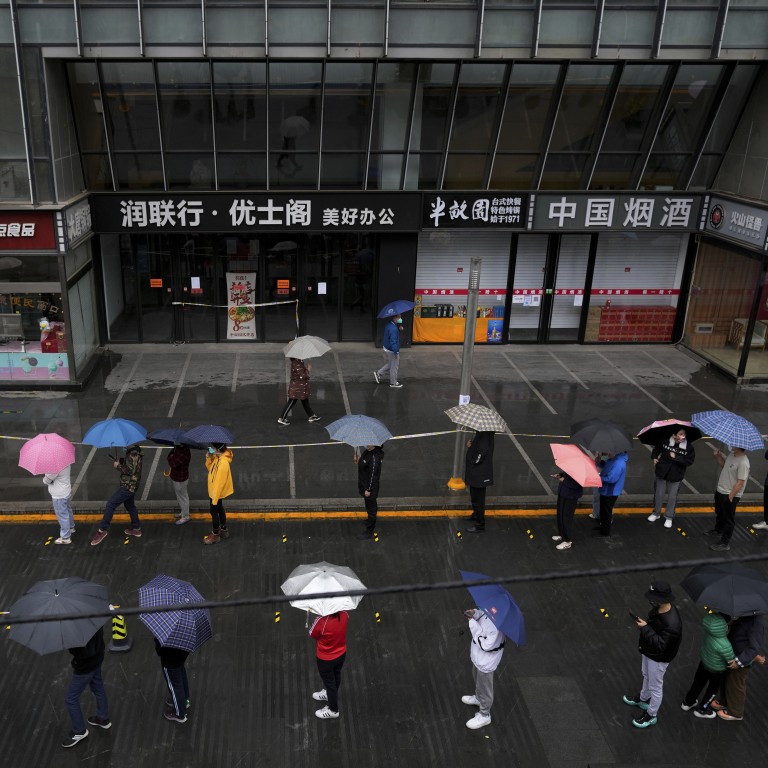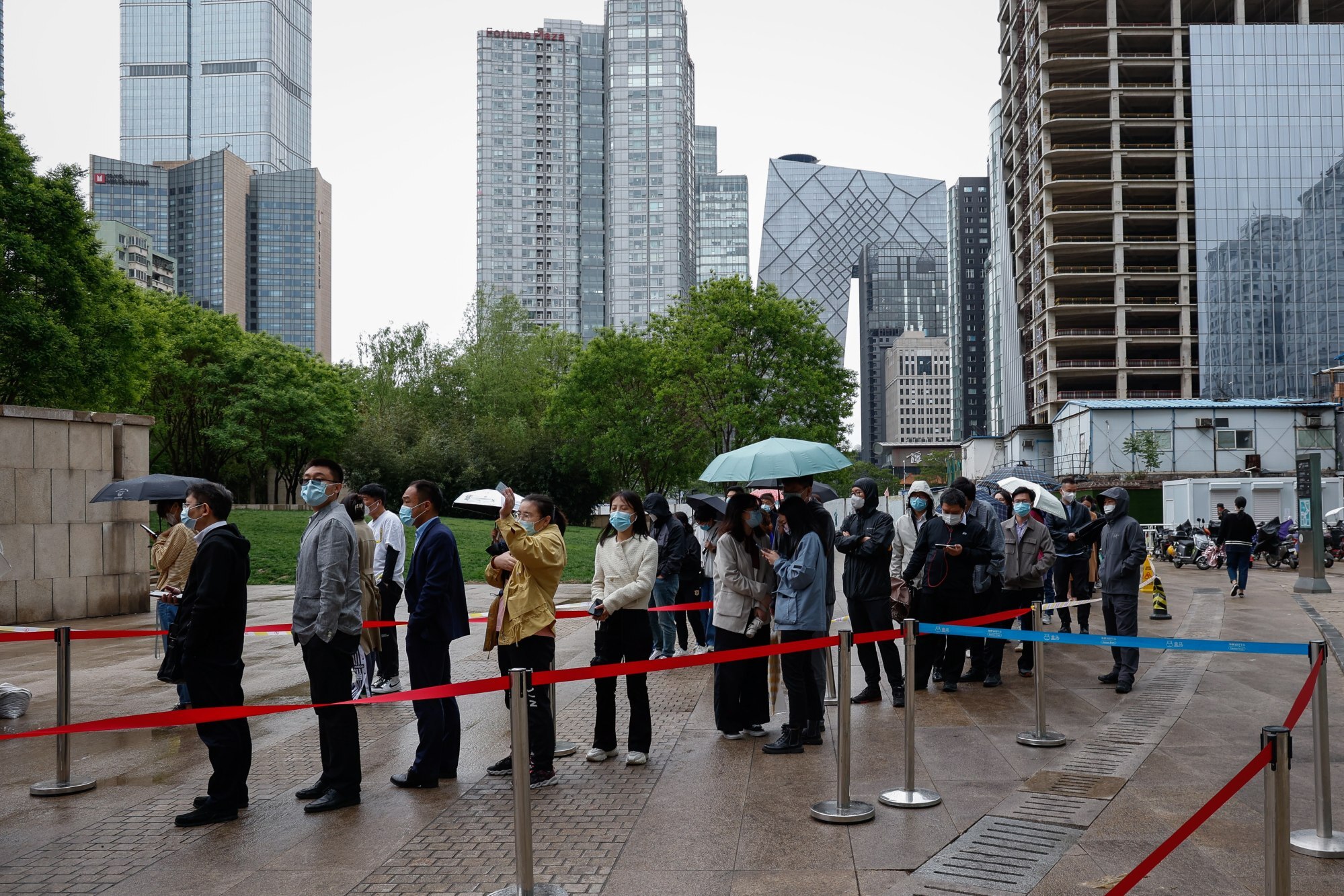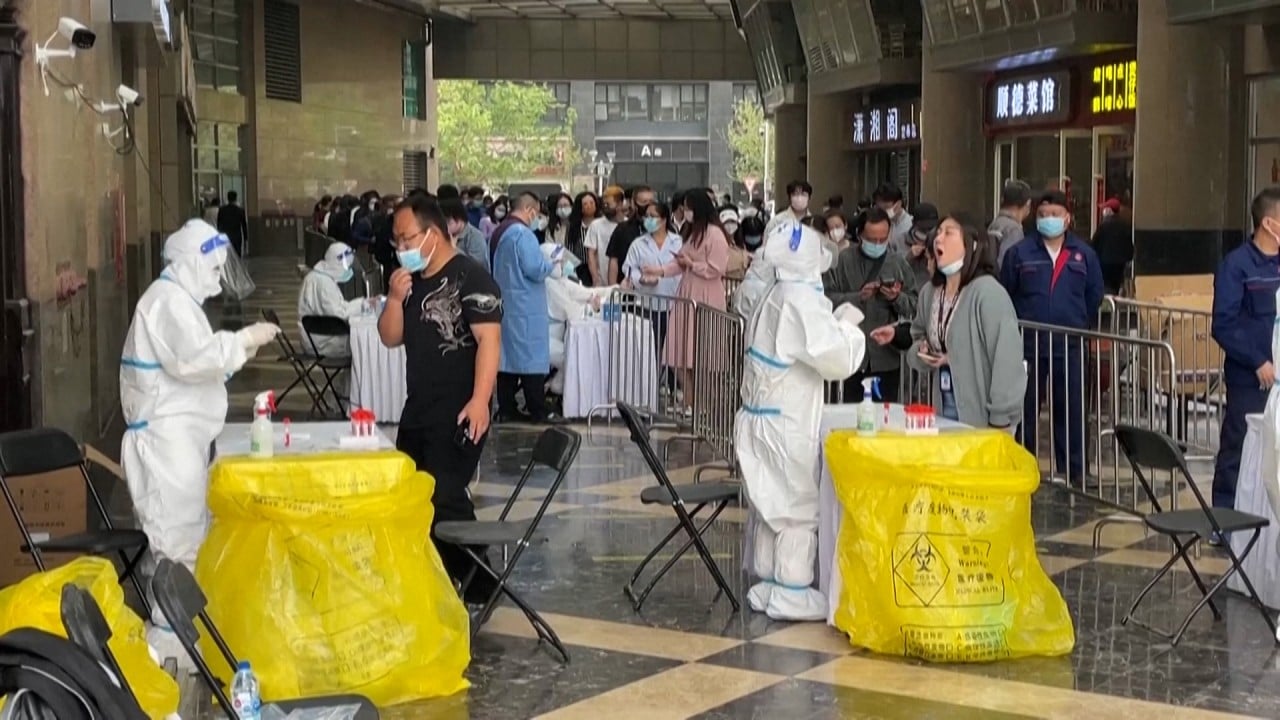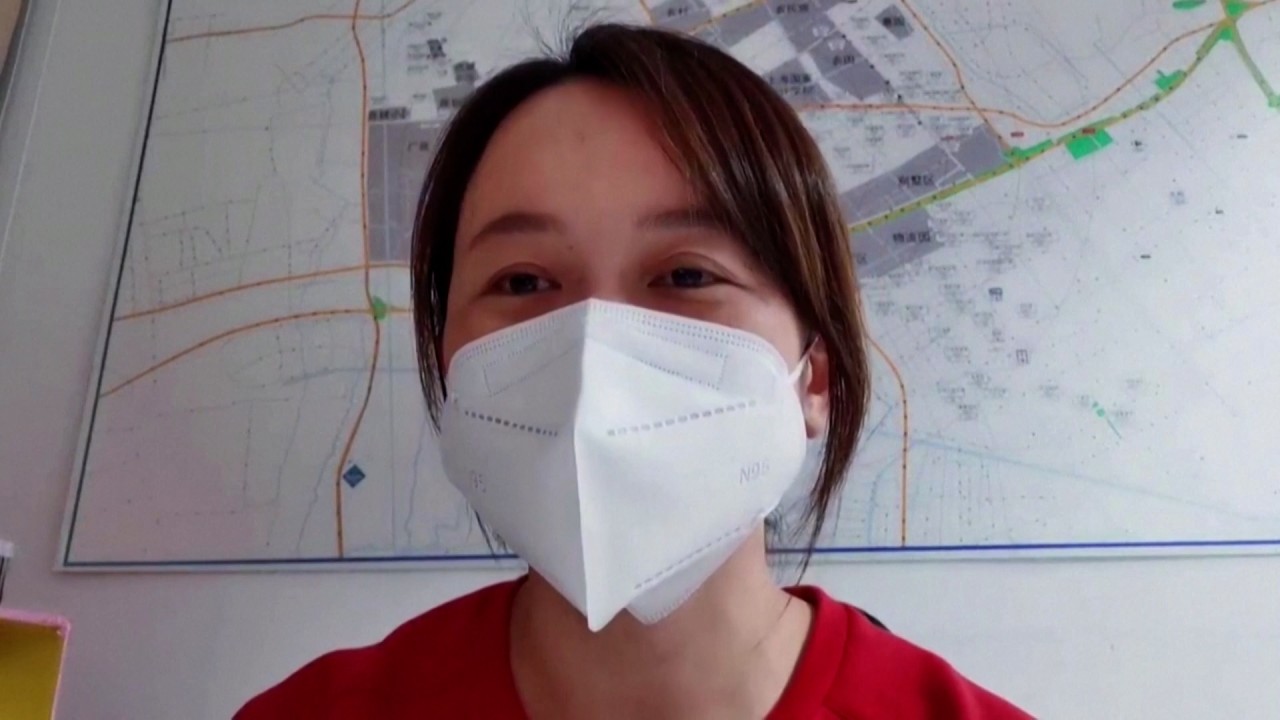
Coronavirus: China urged to be ‘more precise and scientific’ with controls as economic toll mounts
- Local officials are prioritising containment of the latest Omicron outbreak over economic performance, government advisers say
- Beijing is refusing to give up its zero-Covid policy, despite the growing cost and public fatigue with harsh restrictions
China has been urged to avoid excessive pandemic controls and provide a clear exit strategy from its hardline zero-Covid policy to mitigate damage to the economy.
A growing number of communities across China are being placed under lockdown immediately after a new infection is detected, as local officials prioritise containment of the Omicron outbreak sweeping the country over economic performance.
In Beijing’s Daxing district, a community in Yizhuang was locked down on Wednesday after an “abnormal” test result.
“Pandemic controls require people to stay put, but economic development requires mobility. The flow of production factors are the presumptions for growth,” said Yang Weimin, deputy director of the economic affairs committee under the Chinese People’s Political Consultative Conference, a political advisory body.
Pandemic controls should be imposed in “a more precise and scientific pattern”, he said.
The [central] government should provide a clearer zero policy exit mechanism
“And only when the pandemic is under control can we concentrate on promoting development,” Yang said in a column published by news portal Sina.com on Tuesday.
Baotou, an Inner Mongolian city that is a key base for rare earths production, imposed a blanket lockdown on Monday after two confirmed cases, while the industrial city of Wuhu in eastern Anhui province locked down residents after finding just one case last week.
“Precise pandemic control is key to economic recovery,” said Lu Ting, chief China economist at Nomura, at a forum organised by Renmin University of China earlier this month.
“How to reduce the number of nucleic acid tests for all people, how to minimise extreme measures such as closing down cities and roads, and how to formulate unified national standards for closure and control, so as to prevent layers of restrictions from building up at local government levels.
“The [central] government should provide a clearer zero policy exit mechanism, so that everyone can see hope and it reduces uncertainty, so that demand for investment needs will rise.”
Another government adviser in Beijing, who did not want to be named because of the sensitivity of the issue, said that local officials are prioritising zero-Covid.
“Have you ever seen officials dismissed because of poor economic conditions? [Right now] they are dismissed only because of the failure to control the outbreaks,” the adviser said.
China’s economy is being hit by its worst Covid-19 outbreak in two years, and the government has responded with stringent restrictions, including lockdowns, mass testing and quarantine in government facilities in several manufacturing hubs.
Despite the growing cost to the economy and public fatigue towards the harsh measures, Beijing has defended its containment policy, saying it has kept death rates low compared to other countries.
China shifts focus to Beijing’s record Covid cases as Shanghai crisis eases
But whether local governments can maintain a balance remains in question, according to a source at a foreign business lobby in Beijing.
“The priority for local officials in their performance evaluation this year is no Covid, and they don’t care about the second one, which is the economy,” said the source, who asked not to be named due to the sensitivity of the issue.
Keeping the number of infections and deaths low is vital to China’s claims of political and moral superiority over the United States and Europe, where fatalities have been significantly higher, according to Adam Ni and Brian Wong, political analysts writing for the China Neican newsletter.

However, as the costs of eliminating Covid-19 rise from global isolation and socioeconomic disruptions, policy pressure for change will build, they said.
Official case numbers do not include people who have suffered or died from a lack of medical care due to movement restrictions or prioritisation of public health resources to fight the virus, Ni and Wong said.
“If Beijing’s policy is to match its rhetoric about putting the people’s lives first, then Chinese leaders should reflect on what the fullest extent of preserving lives entails and adjust the policy,” the analysts said.
“As a matter of urgency, there needs to be a more encompassing understanding of lives beyond these narrow statistics obsessed over by officials.”
For now, Beijing is betting that its zero-Covid strategy will repeat the success it had in 2020 when the first outbreak began in Wuhan, which saw 13 million people placed under lockdown for more than three months.
Wuhan was able to quickly resume activity after restrictions were lifted, and its gross domestic product returned to its pre-Covid level by mid-2020.
“The shortest way to recovery is to bring the current Covid wave under control,” said Macquarie Group last week.
“The experiences from the past suggest that the economy could rebound quickly once the lockdown is lifted. As such, removing the supply bottleneck is the single most important thing at this stage.”



